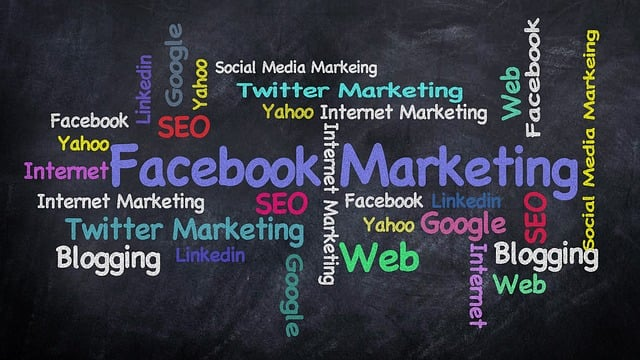10 Real Estate Advertising Facebook Ad Examples That Will Boost Your Sales
Are you a real estate agent looking to supercharge your sales and attract more clients? It’s time to explore the power of real estate advertising Facebook ads. With their precise targeting capabilities, high return on investment (ROI), and adaptability to fair housing guidelines, Facebook ads have become an indispensable tool for real estate agents to boost their sales and expand their business.
In this blog post, you’ll learn why real estate advertising Facebook ads are crucial for real estate success. You will also learn how to create high-converting ads, advanced ad strategies for real estate agents, and how to measure and optimize your ad campaigns. Read on to discover the secrets behind the most successful real estate advertising Facebook ad campaigns. Learn how to replicate their success.
Key Takeaways
Facebook Ads are a key component for real estate success, offering high ROI and precise targeting options.
Creating effective ads involves utilizing Fair Housing Guidelines, choosing the right ad format, crafting compelling copy and visuals to capture attention.
Advanced strategies such as retargeting potential clients and leveraging lookalike audiences can be used to maximize reach & lead generation. Measuring KPIs & A/B testing will help optimize campaigns.
Why Facebook Ads are Crucial for Real Estate Success

To stay competitive in the dynamic real estate market, agents must exploit the advantages of Facebook advertising. With its unmatched ROI and targeting capabilities, Facebook has become the go-to platform for real estate agents. With this they can connect with their target audience and generate leads effectively. Some of the advantages of Facebook advertising for real estate agents include:
High-quality carousel ads
Engaging video ads
Diverse range of ad formats
Targeting options to help reach potential clients
By utilizing these features and staying updated with real estate news, real estate professionals can effectively reach their target audience. This is how they grow their real estate business.
However, it’s not just about running a few ads and hoping for the best. To achieve success with Facebook real estate ads, agents must develop a solid strategy. They must maintain consistency, and continually optimize their ad campaigns. By understanding Fair Housing Guidelines and adapting to Facebook’s unique advertising policies, you can also ensure that your ad spend is used effectively and ethically.
We will provide you with a deeper understanding of the high ROI and targeting capabilities of real estate Facebook ads. This, along with guidance on adapting your ad strategies to comply with Fair Housing Guidelines, will make you successful.
High ROI and Targeting Capabilities
Facebook is widely recognized for its high ROI and precise targeting capabilities, making it an essential tool for real estate agents who want to maximize their ad spend and generate quality leads through Facebook marketing. By creating a Facebook business page, agents can take advantage of various ad formats, such as carousel and video ads, which can be highly effective in showcasing properties and capturing the attention of potential buyers.
To create a target audience for your real estate Facebook ads, you can select criteria such as:
Location
Age group
Gender
Interests
Behaviors
By defining your ideal customer in just a few words, you can ensure that your ads reach the right people and resonate with them, ultimately driving engagement and conversions.
Furthermore, advanced strategies such as the use of high-production-value videos, maps, and “Coming Soon” banners can help tailor your ad campaigns to the specific needs and preferences of your target audience.
Adapting to Fair Housing Guidelines
Fair Housing Guidelines are essential laws designed to protect individuals from discrimination in housing-related activities. To ensure compliance, Facebook has introduced a special ad category to regulate the targeting of housing ads, which means that real estate agents can no longer target ads based on demographics, behavior, or ZIP code.
Adapting your Facebook ad strategies to comply with these guidelines enables you to:
Target potential clients effectively
Avoid discrimination
Ensure that your ad spend is used ethically
Guarantee that all potential clients are treated fairly and equally.
Creating High-Converting Real Estate Facebook Ads

Having covered the significance of Facebook ads in real estate success, we can now shift focus to creating high-converting ads that connect with your target audience and yield results. This involves selecting the right ad format, crafting compelling ad copy, and utilizing eye-catching visuals.
We will delve into each of these elements with greater detail.
Choosing the Right Ad Format
Selecting the appropriate ad format for your real estate Facebook ads can significantly impact the success of your campaign. Some popular choices for real estate agents include:
Carousel ads: These allow you to showcase multiple images or videos of a property in a single ad, making it easier for potential buyers to visualize the property and pique their interest.
Video ads: These can be used to create engaging and immersive experiences, showcasing the property in a dynamic way.
Single image ads: These are simple and effective, allowing you to highlight the key features of a property with a single compelling image.
Choosing the right ad format can help you attract more potential buyers and increase the effectiveness of your real estate Facebook ads.
Video ads, on the other hand, can provide an immersive virtual tour experience that grabs the attention of your audience and keeps them engaged. Single image ads are another powerful option for highlighting specific features or promoting a single property listing. By choosing the right ad format, you can effectively convey your message and ensure that your ads stand out in the Facebook news feed.
Crafting Compelling Ad Copy
The ad copy is the backbone of your real estate Facebook ad. To craft compelling ad copy that resonates with your target audience, it’s crucial to:
Be specific
Emphasize the unique selling proposition of the property
Use persuasive language
Keep it concise
By addressing key customer pain points and focusing on the benefits of the property, you can create ad copy that appeals to your potential clients and encourages them to take action.
Moreover, incorporating a personal touch into your ad copy can make it more relatable and engaging for your audience. Some ways to do this include:
Including client testimonials, which serve as powerful social proof and help build trust with potential clients
Using persuasive language that speaks directly to your audience’s needs and desires
Sharing personal anecdotes or stories that connect with your audience on an emotional level
By combining persuasive language with a personal touch, you can create ad copy that not only captures the attention of your audience but also drives results.
Utilizing Eye-Catching Visuals
Visuals play a crucial role in capturing the attention of potential clients and encouraging them to engage with your real estate ads. Some highly effective visuals for real estate Facebook ads include:
High-quality images
Professional real estate photography
Floor plans
Virtual tour videos
In addition to utilizing stunning visuals, it’s important to showcase exterior and nearby areas of the property to provide a complete picture and help potential buyers visualize themselves in the space. By incorporating eye-catching visuals and showcasing the property in its best light, you can significantly increase the likelihood of generating leads and driving conversions.
Advanced Facebook Ad Strategies for Real Estate Agents

To enhance your real estate Facebook ad campaigns, you should consider advanced ad strategies to extend your reach and generate more qualified leads. This section will discuss three advanced Facebook ad strategies for real estate agents namely, retargeting potential clients, using lookalike audiences, and integrating traditional marketing efforts.
Retargeting Potential Clients
Retargeting ads are a powerful tool that allows real estate agents to re-engage potential clients who have previously shown interest in their services or properties. By using tracking technology to collect behavioral data, you can optimize conversion rates and ensure that your ads are shown to the most relevant audience.
Creating a retargeting ad on Facebook for real estate services involves the following steps:
Set up a custom audience based on website traffic.
Tailor your ad to appeal to this audience.
Monitor the performance of your ad and make any necessary adjustments.
By retargeting potential clients, you can increase brand awareness and generate more leads, ultimately leading to higher ROI on your ad spend.
Leveraging Lookalike Audiences
Lookalike audiences are another powerful tool that can help real estate agents reach new potential clients who share similar characteristics with their existing customers. By creating a lookalike audience based on your current client list, you can target Facebook users who are more likely to be interested in your services, thereby increasing the likelihood of generating qualified leads.
To create lookalike audiences for your real estate Facebook ads, you can follow the steps outlined in the knowledge base. By leveraging lookalike audiences, you can optimize your ad targeting and maximize the effectiveness of your ad campaigns.
Integrating Traditional Marketing Efforts
While Facebook ads are undoubtedly powerful tools for real estate agents, integrating them with traditional marketing efforts such as print ads or direct mail can further improve overall marketing ROI and increase response rates. By combining the strengths of both online and offline marketing channels, you can create a comprehensive marketing strategy that reaches a wider audience and drives better results.
Examples of successful integrations between traditional marketing and Facebook ads include:
Showcasing floor plans
Addressing customer needs
Promoting current listings
Utilizing professional visuals
By leveraging the power of both traditional and digital marketing, you can create a well-rounded and effective real estate advertising strategy.
Measuring and Optimizing Your Real Estate Facebook Ads

You must measure and optimize your real estate Facebook ads to ensure optimal performance and a positive return on investment. By monitoring key performance indicators (KPIs) and continuously testing and improving your ad campaigns, you can make data-driven decisions and refine your advertising strategy for greater success.
Monitoring Key Performance Indicators (KPIs)
Tracking KPIs such as click-through rates, cost per lead, and conversion rates can help you understand the effectiveness of your Facebook ad campaigns and make data-driven decisions to optimize your advertising efforts. By analyzing these metrics, you can identify areas of improvement and make necessary adjustments to your ads.
Meta Business Suite, a tool provided by Facebook, can help you monitor KPIs for your real estate Facebook ads by providing insights and analytics on the performance of your Facebook and Instagram business profiles. With this valuable information, you can make informed decisions about your ad campaigns and continually refine your strategies for better results.
A/B Testing and Continuous Improvement
A/B testing different ad elements can help you identify the most effective strategies and continuously improve your ad campaigns. Here’s how it works:
Create two versions of an ad with one element altered, such as headlines, images, or targeting options.
Run both versions simultaneously to compare their performance.
Analyze the data to determine which version performs better.
Use the insights gained to make data-driven decisions about which elements work best for your target audience.
By regularly conducting A/B tests, you can optimize your ad campaigns and achieve better results.
Following the recommended best practices for A/B testing in Facebook Ads for real estate, such as testing one element at a time and using an ideal time frame of at least 7 days, can ensure that your tests yield accurate and actionable insights. By continuously testing and improving your ad campaigns, you can optimize your marketing efforts and drive better results in the long run.
Case Studies: Successful Real Estate Facebook Ad Campaigns

Having covered various strategies and tactics for creating, optimizing, and measuring real estate Facebook ads, we will now examine some case studies of successful ad campaigns. These examples provide valuable insights and inspiration for creating high-performing ads that drive results.
Example 1: Luxury Property Showcase
A luxury property showcase ad is an excellent example of a successful real estate Facebook ad campaign, as well as an effective real estate ad. This ad uses captivating visuals, persuasive copy, and targets affluent buyers to generate leads and attract high-end buyers.
The stunning visuals help the property stand out in the crowded Facebook news feed, while the compelling copy highlights the unique selling points of the property and appeals to potential buyers’ desires.
Example 2: Educational Event Promotion
Another successful real estate Facebook ad campaign is an educational event promotion that targets first-time homebuyers. By providing valuable information through a free webinar or workshop, this ad generates leads and builds trust with potential clients. The call-to-action “Sign up” encourages users to attend the event and provides the real estate agent with valuable contact information for follow-up marketing efforts.
Summary
In conclusion, Facebook ads are an indispensable tool for real estate agents looking to boost their sales and attract more clients. By understanding the importance of Facebook ads, creating high-converting ads, utilizing advanced ad strategies, and measuring and optimizing your ad campaigns, you can propel your real estate business to new heights.
So, what are you waiting for? Start harnessing the power of Facebook ads today and watch your real estate business soar to success!
For more info on real estate posts for social media, see our blog post: https://www.quickcommissionadvance.com/blog/get-creative-with-real-estate-posts-for-social-media-in-2023/
Frequently Asked Questions

Does Facebook advertising work for real estate?
Facebook advertising can be a powerful tool for real estate businesses. Around 90% of realtors use it to promote their services and almost half say they get their highest quality leads through social media. With the right strategy, it’s possible to effectively capture attention and increase leads, clients, listings, and sales.
How much does a Facebook real estate ad cost?
On average, Facebook real estate ads cost around $2.70 per click.
How do I optimize my Facebook ads for real estate?
To optimize your Facebook ads for real estate, target your desired buyer pool using location, age, income, home ownership status, and lookalike audiences. Set a budget and timeline for the ad campaigns, choose the type of ads you want to run, and closely monitor KPIs to maximize the success of your efforts.
What are the most important KPIs to track for real estate Facebook ads?
Measuring Click-through rate, cost per lead, conversion rate, and engagement are essential metrics to track for successful real estate Facebook ads.
How can I create a lookalike audience for my real estate Facebook ads?
Create a lookalike audience for your real estate Facebook ads by uploading your current client list to Facebook and using it as the basis.






